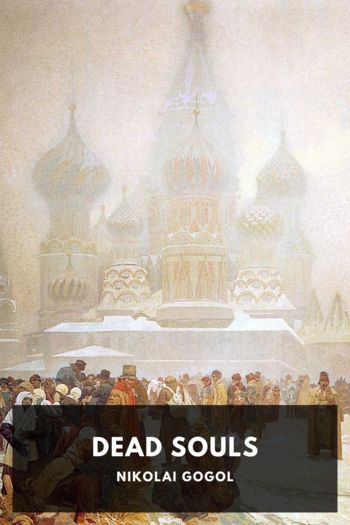Short Fiction - Nikolai Gogol (best selling autobiographies TXT) 📗

- Author: Nikolai Gogol
Book online «Short Fiction - Nikolai Gogol (best selling autobiographies TXT) 📗». Author Nikolai Gogol
It seemed exceedingly strange to Ostap and Andrii that, although a crowd of people had come to the Setch with them, not a soul inquired, “Whence come these men? who are they? and what are their names?” They had come thither as though returning to a home whence they had departed only an hour before. The newcomer merely presented himself to the Koschevoi, or head chief of the Setch, who generally said, “Welcome! Do you believe in Christ?”—“I do,” replied the newcomer. “And do you believe in the Holy Trinity?”—“I do.”—“And do you go to church?”—“I do.” “Now cross yourself.” The newcomer crossed himself. “Very good,” replied the Koschevoi; “enter the kurén where you have most acquaintances.” This concluded the ceremony. And all the Setch prayed in one church, and were willing to defend it to their last drop of blood, although they would not hearken to aught about fasting or abstinence. Jews, Armenians, and Tatars, inspired by strong avarice, took the liberty of living and trading in the suburbs; for the Zaporozhtzi never cared for bargaining, and paid whatever money their hand chanced to grasp in their pocket. Moreover, the lot of these gain-loving traders was pitiable in the extreme. They resembled people settled at the foot of Vesuvius; for when the Zaporozhtzi lacked money, these bold adventurers broke down their booths and took everything gratis. The Setch consisted of over sixty kuréns, each of which greatly resembled a separate independent republic, but still more a school or seminary of children, always ready for anything. No one had any occupation; no one retained anything for himself; everything was in the hands of the hetman of the kurén, who, on that account, generally bore the title of “father.” In his hands were deposited the money, clothes, all the provisions, oatmeal, grain, even the firewood. They gave him money to take care of. Quarrels amongst the inhabitants of the kurén were not unfrequent; and in such cases they proceeded at once to blows. The inhabitants of the kurén swarmed into the square, and smote each other with their fists, until one side had finally gained the upper hand, when the revelry began. Such was the Setch, which had such an attraction for young men.
Ostap and Andrii flung themselves into this sea of dissipation with all the ardour of youth, forgot in a trice their father’s house, the seminary, and all which had hitherto exercised their minds, and gave themselves wholly up to their new life. Everything interested them—the jovial habits of the Setch, and its chaotic morals and laws, which even seemed to them too strict for such a free republic. If a Cossack stole the smallest trifle, it was considered a disgrace to the whole Cossack community. He was bound to the pillar of shame, and a club was laid beside him, with which each passerby was bound to deal him a blow until in this manner he was beaten to death. He who did not pay his debts was chained to a cannon, until someone of his comrades should decide to ransom him by paying his debts for him. But what made the deepest impression on Andrii was the terrible punishment decreed for murder. A hole was dug in his presence, the murderer was lowered alive into it, and over him was placed a coffin containing the body of the man he had killed, after which the earth was thrown upon both. Long afterwards the fearful ceremony of this horrible execution haunted his mind, and the man who had been buried alive appeared to him with his terrible coffin.
Both the young Cossacks soon took a good standing among their fellows. They often sallied out upon the steppe with comrades from their kurén, and sometimes too with the whole kurén or with neighbouring kuréns, to shoot the innumerable steppe-birds of every sort, deer, and goats. Or they went out upon the lakes, the river, and its tributaries allotted to each kurén, to throw their nets and draw out rich prey for the enjoyment of the whole kurén. Although unversed in any trade exercised by a Cossack, they were soon remarked among the other youths for their obstinate bravery and daring in everything. Skilfully and accurately they fired at the mark, and swam the Dnieper against the current—a deed for which the novice was triumphantly received into the circle of Cossacks.
But old Taras was planning a different sphere of activity for them. Such an idle life was not to his mind; he wanted active employment. He reflected incessantly how to stir up the Setch to some bold enterprise,





Comments (0)